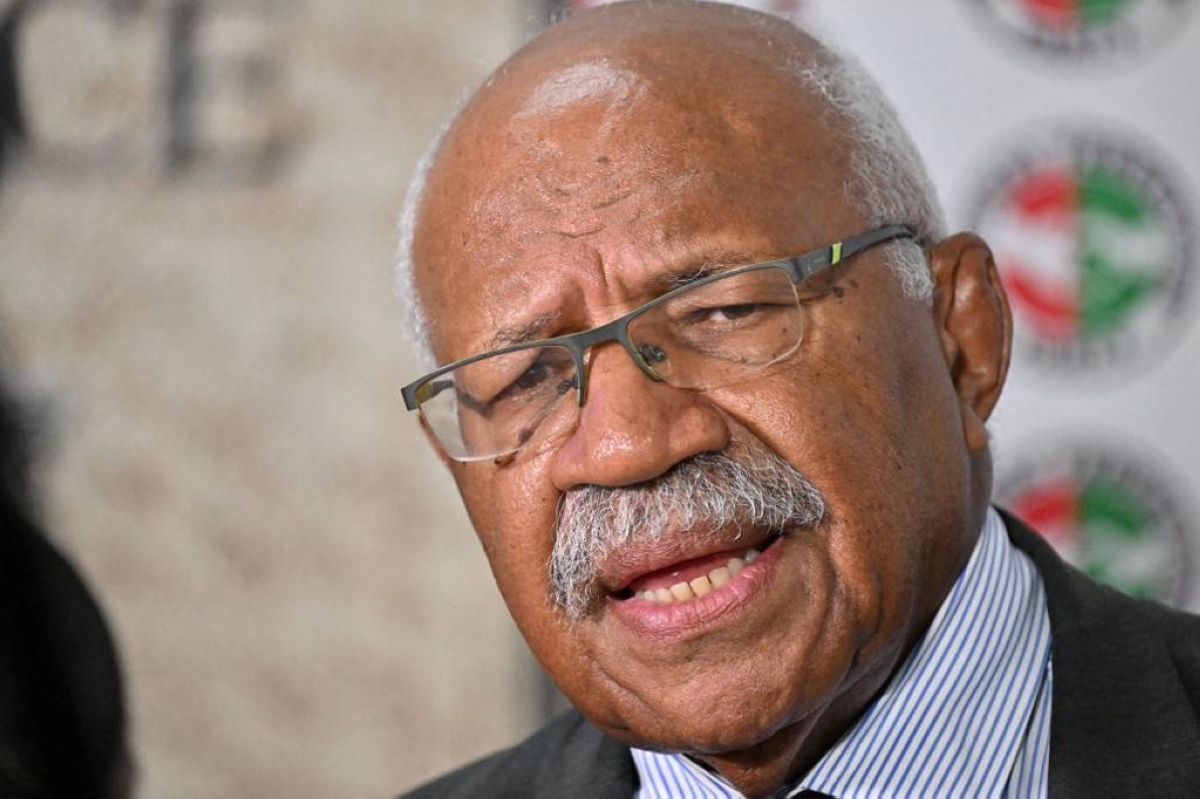(Reuters) – Fiji’s opposition leader Sitiveni Rabuka is expected to become prime minister when parliament sits tomorrow after winning backing from a coalition of three parties, signalling an end to Frank Bainimarama’s 16 years in power.
Fiji has been pivotal to the strategically located South Pacific’s response to increasing competition for influence between China and the United States and Rabuka has said he favours Western-style democracy.
Fiji’s Social Democratic Liberal Party (SODELPA) said today it had voted to form a coalition with Rabuka’s People’s Alliance and the National Federation Party.
At a press conference on Friday, Rabuka said he was grateful for SODELPA’s decision, which would be a “turning point in Fiji’s modern history”.
“It’s now our turn to deliver,” he told reporters.
Fiji has a history of military coups, with Rabuka staging two in 1987, and was dominated by sometimes tense race relations between its indigenous majority and a big ethnic Indian group, before constitutional reform in 2013 to remove a race-based voting system that favoured indigenous Fijians.
The military was called in to assist police maintain law and order on Thursday after Bainimarama and the head of police said there had been attacks on the Indian ethnic minority in the wake of a national election last week that showed no party received a clear majority.
Opposition parties accused Bainimarama and his allies of stoking fears of ethnic trouble as a pretext to cling to power. Bainimarama has yet to concede defeat.
Fiji’s president would call parliament to sit tomorrow morning, where coalition lawmakers will vote for Rabuka to become prime minister, National Federation Party leader Biman Prasad said.
“We believe that the people of this country are united. They want to move on,” he told reporters, dismissing Bainimarama’s claims of ethnic tensions.
Prasad pledged the new government would support a free media, free speech and be inclusive.
“We want to create a new style of politics, a new style of governance, where we want to be inclusive,” he said.
Rabuka has previously said he favours close ties with Australia and supported western-style democracy, while SODELPA has said it is a Christian party that wants Fiji to open an embassy in Jerusalem.
“We stand ready to work with whoever forms government in Fiji”, Australia’s Prime Minister Anthony Albanese said earlier on Friday. “Fiji will remain an important partner of Australia.”
There was a heavy police presence outside the Southern Cross Hotel in the capital of Suva as the SODELPA board met on Friday to vote on the matter for a second time in a week.
An earlier vote on Tuesday in support of the coalition had been nullified by the Supervisor of Elections after a complaint by a senior party official.
Addressing media after the meeting ended, SODELPA leader Viliame Gavoka said SODELPA’s board had voted 13-12 in favour of forming a coalition with People’s Alliance and National Federation Party.
“We believe we have agreed on a way forward that benefits this country,” he said. “Democracy has won.”
Rabuka and Bainimarama had led delegations to the hotel to make presentations to SODELPA, which emerged as a power-broker after winning three seats in the hung parliament.
SODELPA supports policies favouring indigenous Fijians, while Rabuka’s coalition partner, National Federation Party, has drawn support from the Indian community.
Military vehicles patrolled the hotel vicinity as SODELPA met, although Army Commander Major General Jone Kalouniwai said the police were still in control and the military would “respect whatever the outcome is”, Fiji Village reported.
Overnight, some Fijians had posted images of calm scenes and Christmas shopping to social media in protest at the decision to call in the military to assist policing.

